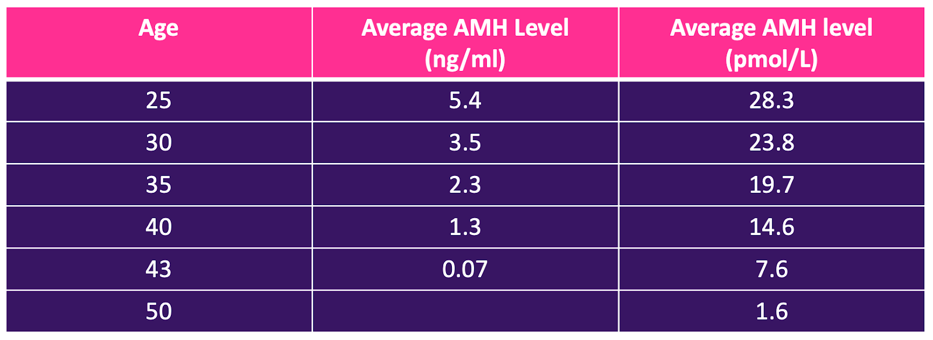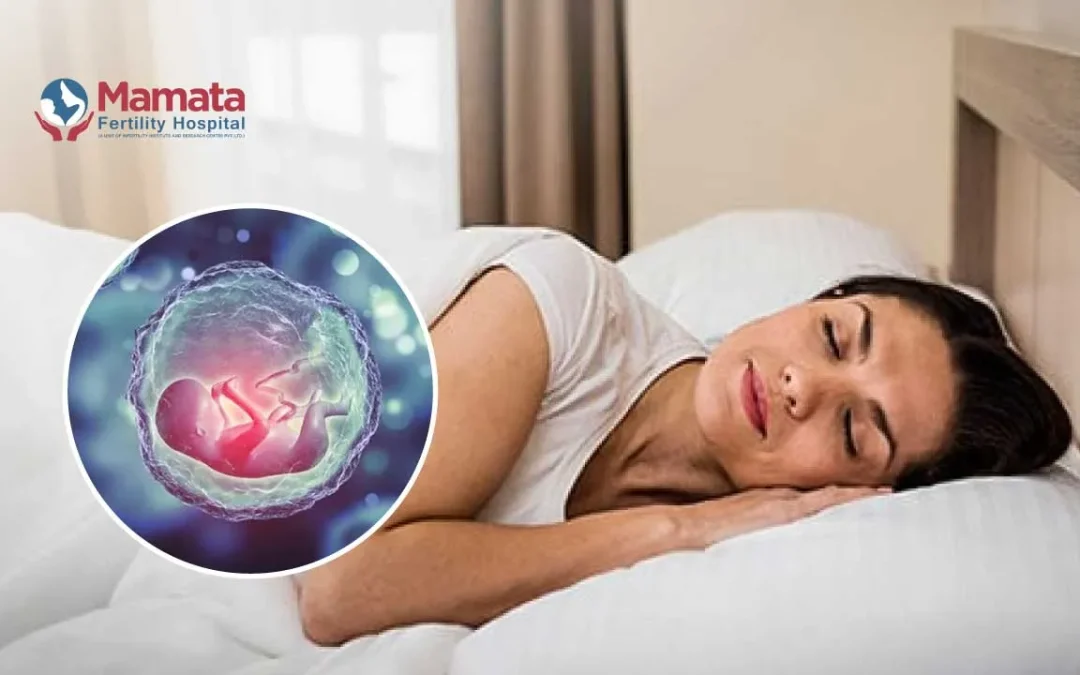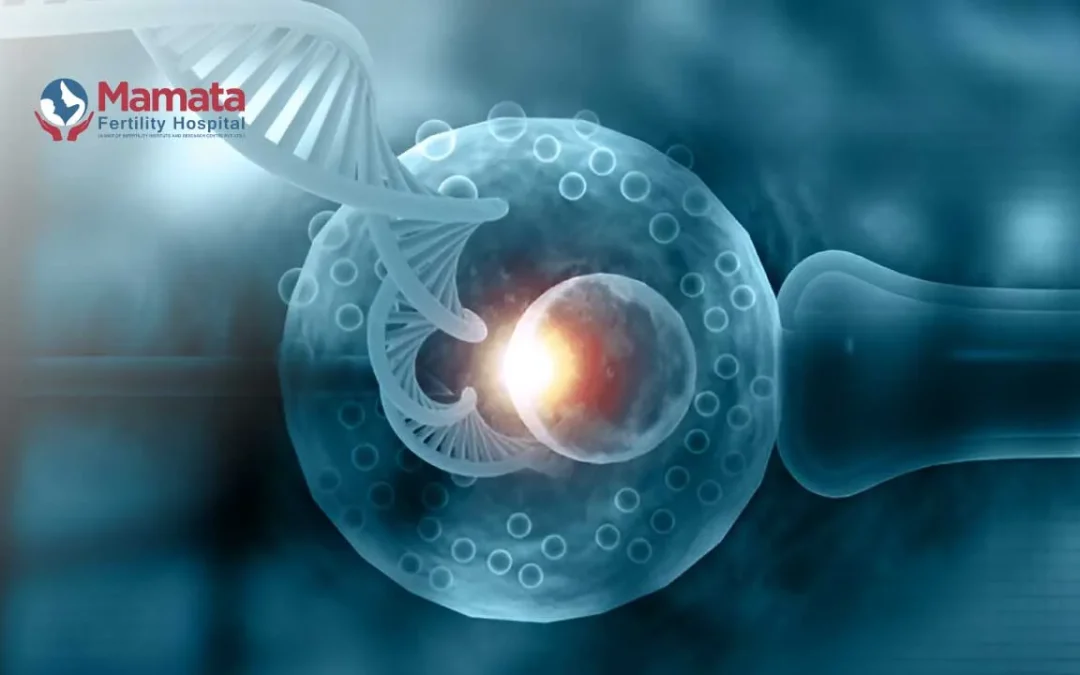Low AMH
Mamata Fertility Hospital in Secunderabad is dedicated to helping women overcome challenges on their path to parenthood.
One crucial aspect of fertility health is Anti-Müllerian Hormone (AMH) levels. Low AMH is often a concern for women seeking to conceive, as it can indicate reduced ovarian reserve.
This article provides a simple, yet thorough explanation of what AMH is, how it affects fertility, and the options available to manage low levels and improve your chances of pregnancy.
For Appointments, Please Call:
More On Low AMH
What is AMH?
Anti-Müllerian Hormone (AMH) is a hormone produced by cells inside the ovarian follicles, which are tiny sacs that hold immature eggs. AMH levels indicate the number of eggs left in a woman’s ovaries, also known as “ovarian reserve.”
While both egg quantity and quality naturally decline with age, AMH is used as a marker to predict the remaining fertility potential.
AMH and Age
AMH levels are higher when a woman is younger, typically peaking in her 20s, and gradually decrease as she ages. By the time a woman reaches menopause, AMH levels drop to almost zero.
This decline is a normal part of aging, but some women may experience it earlier than expected, leading to low AMH at a younger age.


Causes of Low AMH
Although low AMH is often associated with aging, there are other factors that can contribute to diminished ovarian reserve. These include:
Age
The natural decline in ovarian reserve begins in the early 30s and accelerates after the mid-30s. Older women are more likely to have low AMH levels due to fewer remaining eggs.
Genetic Factors
Family history plays an important role in ovarian function. If your mother or close female relatives experienced early menopause or fertility issues, you may have an increased risk of low AMH.
Medical Conditions
Certain medical conditions can lead to reduced ovarian reserve, such as:
- Polycystic Ovary Syndrome (PCOS): While women with PCOS often have elevated AMH levels, in some cases, prolonged ovarian dysfunction can eventually lower ovarian reserve.
- Endometriosis: This condition, particularly when it involves the ovaries, can damage follicles and reduce egg supply.
- Autoimmune Disorders: Autoimmune conditions may attack the ovaries, leading to a decline in egg production.
Lifestyle Factors
Smoking, excessive alcohol consumption, or exposure to environmental toxins can accelerate the decline of ovarian reserve, contributing to low AMH levels.
Medical Treatments
Procedures or treatments such as ovarian surgeries, chemotherapy, or radiation therapy for cancer can lead to a decline in AMH by damaging the ovaries.
Impact on Fertility
Low AMH levels suggest a reduced egg count, but it does not mean that pregnancy is impossible. The impact of AMH on fertility varies depending on factors such as age, overall health, and the quality of the remaining eggs.
Natural Conception
Women with low AMH may find it harder to conceive naturally because there are fewer eggs available for fertilization. However, natural conception is still possible, especially if you’re younger and the quality of your eggs remains high.
Assisted Reproductive Technologies (ART)
Low AMH can affect the outcome of fertility treatments like in-vitro fertilization (IVF). Women with diminished ovarian reserve may respond poorly to ovarian stimulation, producing fewer eggs during an IVF cycle.
However, even with fewer eggs, pregnancies through IVF are possible, particularly when combined with advanced techniques like embryo freezing or donor eggs.
Risk of Early Menopause
Some women with low AMH may be at risk of early menopause, which further narrows the timeframe for conceiving naturally.
It’s important to remember that AMH is just one piece of the fertility puzzle. Other factors, such as hormonal balance and overall reproductive health, also play significant roles.
Diagnostic and Monitoring Strategies
Testing AMH levels is one of the first steps in evaluating ovarian reserve and understanding fertility potential. Here’s how doctors assess and monitor low AMH:
Blood Test
The AMH test is a simple blood test that measures the hormone levels in your bloodstream. Unlike other hormone tests, it can be performed at any time during your menstrual cycle.
Antral Follicle Count (AFC)
An ultrasound is used to count the visible follicles in your ovaries, providing additional insight into your ovarian reserve.
Follicle-Stimulating Hormone (FSH) Levels
FSH is another hormone that contributes to ovarian function. High FSH levels combined with low AMH typically indicate diminished ovarian reserve.
Comprehensive Fertility Evaluation
If low AMH levels are detected, your doctor may recommend a broader evaluation to check for other factors influencing fertility, including egg quality, hormone levels, and uterine health.
Regular monitoring helps track changes in ovarian reserve and guides recommendations for treatment options.
Treatment and Support Options
While low AMH cannot be reversed, various treatments and strategies can improve your chances of conception. At Mamata Fertility Hospital, we tailor treatment plans to the unique needs of each woman.
Fertility Medications
Medications like gonadotropins are used to stimulate the ovaries and encourage the production of multiple eggs during an IVF cycle. Although women with low AMH may produce fewer eggs, these medications maximize the number of eggs retrieved.
Assisted Reproductive Techniques (ART)
-
- IVF (In-Vitro Fertilization): A common and effective procedure for women with low AMH, IVF involves fertilizing eggs outside the body and transferring embryos back into the uterus.
- ICSI (Intracytoplasmic Sperm Injection): This technique is often used with IVF to enhance fertilization success by directly injecting sperm into the egg.
- Egg Donation: For women with very low ovarian reserve, using donated eggs from younger women provides an excellent chance of conception.
Hormonal Therapy
Supplementing hormones like DHEA or estrogen may improve ovarian function and strengthen the uterine lining for implantation.
Close Monitoring
Frequent monitoring during fertility treatment ensures timely adjustments to protocols, maximizing the chances of success.
Lifestyle and Dietary Recommendations
Lifestyle and dietary changes can optimize fertility and support treatment outcomes, even for women with low AMH:
Nutrition
- Fertility-Boosting Foods: Focus on foods rich in antioxidants, such as leafy greens, berries, nuts, and seeds, to protect your eggs from oxidative stress.
- Healthy Fats: Include omega-3 fatty acids from sources like fish, walnuts, and flaxseeds to support hormone health.
- Limit Processed Foods: Excessive sugar, trans fats, and processed foods can harm fertility.
Manage Stress
High stress levels can interfere with hormone balance. Practice relaxation techniques like yoga, meditation, or mindfulness to reduce stress.
Exercise
Regular moderate exercise, such as walking or swimming, helps maintain a healthy weight and supports hormonal health. Avoid over-exercising, which may worsen hormonal imbalances.
Quit Smoking and Alcohol
Both smoking and excessive alcohol use can accelerate the depletion of ovarian reserve. Quitting these habits can improve overall reproductive health.
Sleep and Self-Care
Aim for 7-8 hours of quality sleep each night and make time for self-care to support your physical and emotional well-being.
Frequently Asked Questions (FAQs)
1. What is considered a low AMH level?
AMH levels below 1 ng/mL are often considered low. However, the interpretation depends on your age and overall health.
2. Can you still get pregnant naturally with low AMH?
Yes, pregnancy is still possible, especially for younger women. However, low AMH may make conception more difficult, and you may benefit from fertility support.
3. Does low AMH affect egg quality?
Low AMH primarily reflects the quantity of eggs, not their quality. Egg quality is more closely linked to age.
4. Are there natural ways to improve AMH levels?
AMH levels cannot be increased, but lifestyle changes like eating a healthy diet, managing stress, and avoiding harmful substances can improve fertility.
5. When should I seek help for low AMH?
If you’ve been trying to conceive for six months to a year without success, or if you’re over 33yrs ,consult a fertility specialist for an evaluation.
At Mamata Fertility Hospital, we understand the complexities of low AMH and its impact on fertility. Our team offers personalized care and cutting-edge treatments to help you achieve your dream of parenthood.
Contact us today for a consultation or to learn more about how we can support your fertility journey.
Reviewd By

Dr Aarti Deenadayal Tolani
Clinical Director, Scientific In-Charge & Fertility Consultant
MBBS, MS ( OBGYN), FICOG
Expert in Reproductive Endocrinology, Infertility, Advanced Gynaec Ultrasound, and Faculty at Mamata Fertility Hospital.
Blogs and Articles

What to Do Before and After Embryo Transfer?
What to Do Before and After Embryo Transfer?EmbryoUndergoing IVF treatment is an emotional and life-changing experience, with the embryo transfer being one of the most critical steps in the process. Preparing well both physically and emotionally can significantly...

Role of AI in IVF
Role of AI in IVFIVFArtificial Intelligence (AI) is revolutionising healthcare, and its impact on the field of in-vitro fertilization (IVF) is nothing short of groundbreaking. With AI’s ability to analyse vast data sets and predict outcomes with precision, it is...

3 Failed IVF Cycles: What Next?
3 Failed IVF Cycles: What Next? IVFDealing with repeated IVF failures is a deeply emotional and physically taxing experience. For couples and individuals on the family-building path, three failed IVF cycles can feel like a significant setback. But it’s important to...

